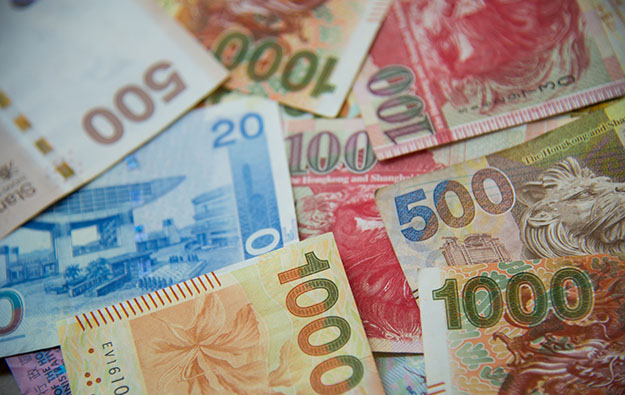Macau needs more effort on money launder probes: APG
Dec 02, 2017 Newsdesk Latest News, Macau, Top of the deck

Macau’s supervisory authorities, law enforcement agencies, and Financial Intelligence Office have a “reasonably sound understanding of risks involving the gaming and financial sectors, particularly high-risk junkets”.
But the city’s authorities have “an uneven understanding of major risks related to regional organised crime, cross-border movements and corruption” in relation to movement of illicit funds.
So says the Asia/Pacific Group on Money Laundering (APG) in its full report published on Friday regarding a mutual evaluation conducted between it and the Macau authorities on the city’s anti-money laundering and counter-terrorist financing measures.
The report was adopted by the APG at its annual meeting in July, but has only just been issued in its full and final form.
One purported weakness identified in the report – a lack of a cross-border declaration system regarding movement of cash and monetary instruments – has already been addressed. Macau introduced such a system on November 1.
The APG report suggested that the number of investigations into suspected money laundering “do not match the risk profile” for the city.
The authors stated: “There have only been five money laundering convictions. A shortage of prosecutorial resources in the Public Prosecutions Office, heavy evidentiary requirements for third-party money laundering, and the lack of an adequate policy directive have hampered the quantity and quality of money laundering investigations and prosecutions, resulting in a low conviction rate, with a correspondingly low average sentence length ranging from three to five years for just the money laundering offence.”
Macau’s gaming regulator last year extensively revised the anti-money laundering rules for the sector, but kept the threshold set for casinos to report “large” transactions at MOP500,000 (US$62,200). The new rules were enacted on May 13, 2016.
Notwithstanding the announced changes to Macau’s AML rules, the U.S. State Department has repeatedly called for Macau to reduce the large sum transaction reporting threshold of MOP500,000 to the equivalent of US$3,000 “to bring it in line with international standards”.
There were 2,321 suspicious transaction reports – also known as STRs – relating to financial dealings in Macau in 2016, up by 28.4 percent compared to the prior-year period, according to the city’s Financial Intelligence Office.
The number of STRs related to the gaming sector rose by nearly 24.0 percent year-on-year to 1,546 in 2016. They accounted for approximately 66.6 percent of all STR submission in Macau last year.
A recent focus for the Macau government has been tighter controls on the large volumes of money flowing through the city’s casinos via VIP gambling. Such play is typically funded by credit issued by government-licensed gaming promoters – commonly referred to as junkets. They also arrange – via agents and sub-agents – collections on player gambling losses.
Related articles
-
 Economy, more visitors lead to Macau...
Economy, more visitors lead to Macau...Jul 18, 2024
-
 Macau 1H casino STRs up 57 pct y-o-y:...
Macau 1H casino STRs up 57 pct y-o-y:...Jul 17, 2024
More news
-
 Donaco EBITDA up y-o-y to above US$4mln...
Donaco EBITDA up y-o-y to above US$4mln...Jul 26, 2024
-
 HK listed Palasino upgrades Czech...
HK listed Palasino upgrades Czech...Jul 26, 2024
Latest News
Jul 26, 2024
Border-casino operator Donaco International Ltd has achieved a 164.17-percent year-on-year increase in its latest quarterly group earnings before interest, taxation, depreciation and amortisation...Sign up to our FREE Newsletter
 (Click here for more)
(Click here for more)
Pick of the Day
”We’ve got more traction outside of Macau at the moment. But Macau’s going be a bigger focus for us”
David Punter
Regional representative at Konami Australia
Most Popular
 Sheraton brand to exit Londoner Macao, to be Londoner Grand July 25, 2024
Sheraton brand to exit Londoner Macao, to be Londoner Grand July 25, 2024  Macau regulator probes unlicensed gaming agents July 24, 2024
Macau regulator probes unlicensed gaming agents July 24, 2024  Philippines gives 20k aliens in POGOs 60 days to leave July 25, 2024
Philippines gives 20k aliens in POGOs 60 days to leave July 25, 2024  Philippines-listed DigiPlus says not affected by POGO ban July 24, 2024
Philippines-listed DigiPlus says not affected by POGO ban July 24, 2024  Sands China 2Q EBITDA down q-o-q amid low hold, renovation July 25, 2024
Sands China 2Q EBITDA down q-o-q amid low hold, renovation July 25, 2024






